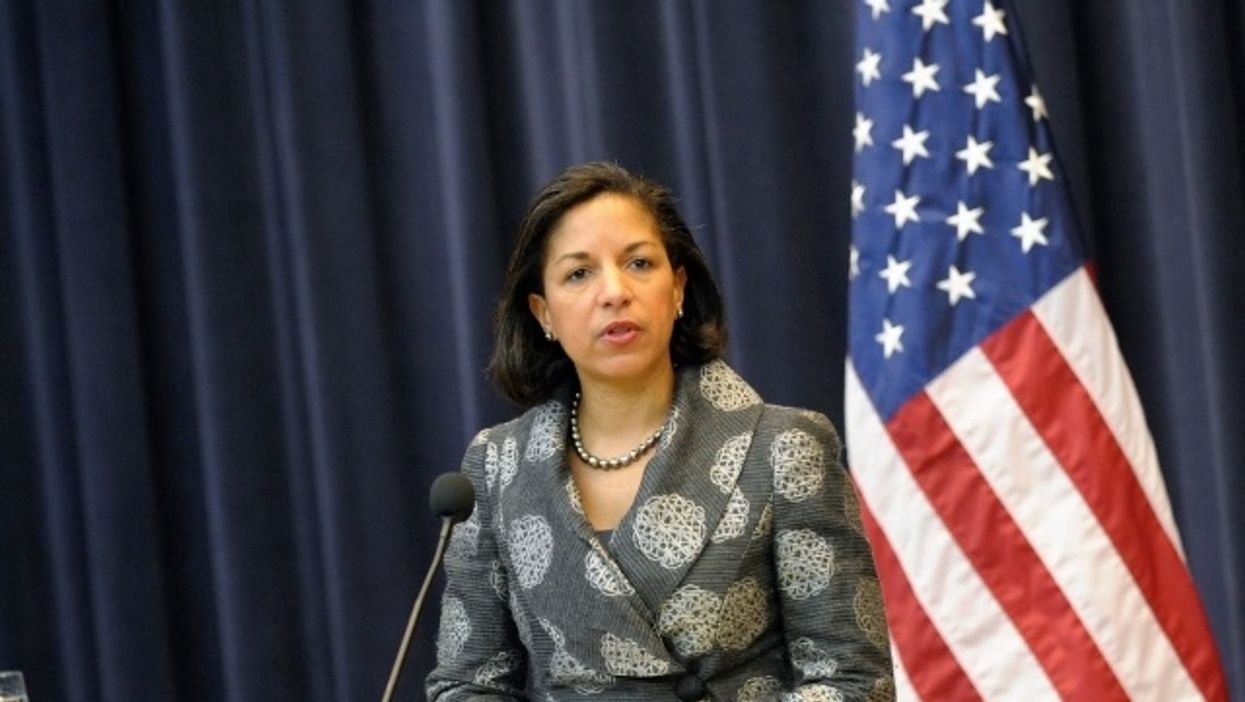No, Susan Rice Didn’t Support The Iraq War
If Joe Biden takes my advice and chooses Susan Rice to be his running mate, then there will be criticism from people who opposed the Iraq War. That's because if you Google "Susan Rice" and "Iraq War," you will find several sources, including Wikipedia, that say she supported it. Let me try to save critics and journalists from that error by setting the record straight.
From everything I've been able to find, Rice did not support the Iraq War. She opposed it, in a show of wise and independent judgment.
I came by this information by falling victim to these sources and including a line in a recent column saying she endorsed the invasion. Shortly after it appeared online, I got a nice email from her press spokesperson, Erin Pelton, thanking me for the column but informing me that Rice opposed the war.
This came as a surprise. I asked for documentation but wasn't convinced by the information she sent. I talked with Pelton by phone; she said she would see what else she could find.
Then, Rice called and explained, in a gracious and congenial way, how frustrating this "urban legend" has been for her. She recounted her thinking, assured me that colleagues from the Brookings Institution, where she worked at the time, would back her up, and said, with a laugh, "I'll swear on a stack of Bibles!" Unsure what to think, and with the deadline for the Tribune's print edition looming, I deleted the reference.
Later, I contacted Michael O'Hanlon and Ivo Daalder, fellow foreign policy scholars who were at Brookings with Rice at the time. O'Hanlon told me, "Susan was consistently against it from 2002." Daalder concurred: "Susan was definitely against the war."
Their memories confirm what Rice wrote in her memoir, Tough Love: "From the start, I viewed that war of choice as a dangerous diversion from the main objective of defeating al-Qaida globally and in Afghanistan." She served as an adviser to Howard Dean's 2004 presidential campaign "because he was the only leading Democratic candidate to oppose the Iraq War." She signed up with Barack Obama in 2008 because he also opposed it.
But she got falsely tagged as a supporter of the war, and the stain has refused to come out, mainly because of two statements that have been misinterpreted.
In a December 2002 interview on NPR, she said: "It's clear that Iraq poses a major threat. It's clear that its weapons of mass destruction need to be dealt with forcefully, and that's the path we're on. I think the question becomes whether we can keep the diplomatic balls in the air and not drop any, even as we move forward, as we must, on the military side."
But O'Hanlon notes: "The military options she alludes to are not specified. For the Clinton administration, they were typically airstrikes or cruise missile strikes of limited duration and effect, not invasions."
Rice also endorsed the idea of "regime change." But there is less there than meets the eye. Bill Clinton signed a bill making it U.S. policy to "support efforts to remove the regime headed by Saddam Hussein from power in Iraq and to promote the emergence of a democratic government to replace that regime." But he didn't think the cause called for a U.S. invasion. The point was to encourage Iraqis to do the job.
In that December interview, Rice also said: "The administration frankly owes the American public a much fuller and more honest assessment of what the costs will be of the actual conflict, as well as the aftermath, the post-conflict reconstruction. And the costs are going to be huge."
Rice didn't oppose the invasion as boldly and unequivocally as some did. Peter Beinart of The Daily Beast said he listened to interviews she did before the war and concluded, "I still can't tell whether Susan Rice supported the war or opposed it." But being cautious and circumspect is not the same thing as supporting the war.
Why does all this matter? First, because the Iraq War was the biggest foreign policy catastrophe since Vietnam, and one most experts endorsed. Second, because Rice had to know her views carried a real risk. Most Democratic senators voted for the war resolution — including Joe Biden, Hillary Clinton and John Kerry. Had the outcome been a glorious triumph, her opposition might have doomed her from serving in another administration.
A lot of smart, knowledgeable people made the mistake of endorsing the Iraq War. Susan Rice deserves credit for not being one of them.
Steve Chapman blogs at http://www.chicagotribune.com/news/opinion/chapman. Follow him on Twitter @SteveChapman13 or at https://www.facebook.com/stevechapman13. To find out more about Steve Chapman and read features by other Creators Syndicate writers and cartoonists, visit the Creators Syndicate website at www.creators.com.












